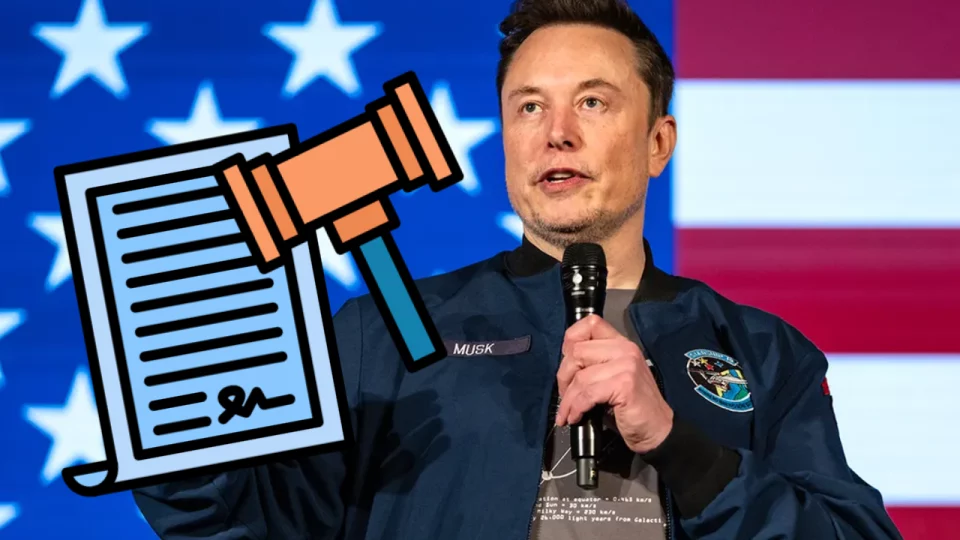Elon Musk, the tech billionaire and CEO of companies like Tesla and SpaceX, finds himself embroiled in yet another legal battle over a controversial $1 million sweepstakes designed to engage voters in swing states. This time, Arizona resident Jacqueline McAferty is taking Musk and the pro-Trump political action committee (PAC), America PAC, to court, alleging that the sweepstakes was a fraudulent scheme.
The legal claim asserts that the giveaway’s supposed random selection process was, in fact, predetermined, and that Musk misled participants to gather their personal data for broader, undisclosed purposes.
With the case unfolding in Texas federal court, Musk’s latest legal troubles have sparked intense scrutiny and raised questions about transparency, accountability, and data privacy in high-stakes political marketing.
Table of Contents
A Political Giveaway Gone Wrong
The lawsuit centers around Musk’s ambitious and high-profile sweepstakes, promising $1 million daily prizes to voters in crucial swing states leading up to the 2024 U.S. elections. Musk announced this initiative at a rally in Pennsylvania, generating significant attention and participation among voters nationwide. According to McAferty’s complaint, the promise of randomly chosen winners was central to the PAC’s messaging, but recent testimonies suggest otherwise.
The controversy escalated when Chris Gober, a lawyer formerly associated with America PAC, revealed in court that the winners were not, in fact, selected at random. His testimony directly contradicts Musk’s earlier claims and has prompted McAferty and other plaintiffs to allege that Musk’s statements misled the public for personal and political gain.
The Class Action Lawsuit and its Implications
The lawsuit, filed in Texas, where Musk relocated many of his operations, has the potential to expand into a larger class-action suit. If accepted, the lawsuit could represent a broad swath of individuals who participated in the sweepstakes under false pretenses, significantly raising the stakes for Musk and America PAC. McAferty’s legal complaint accuses Musk and his associates of fraud and breach of contract, stating that the alleged deception manipulated voters into sharing sensitive information.
McAferty’s lawsuit claims that by portraying the lottery as a random selection process, Musk aimed to entice users to sign the America PAC petition. In exchange, they provided personal information, including their full names, email addresses, mailing addresses, and phone numbers. Notably, the petition lacked any clear limitations on how America PAC might use or sell this data, raising concerns about privacy rights and the ethical treatment of personal information in political campaigns.
The Role of America PAC in the 2024 Elections
The America PAC, backing Musk’s giveaway, has been a vocal supporter of conservative causes, especially those aligning with former President Donald Trump’s political agenda. As the 2024 election approaches, swing states—regions with a nearly equal split in party support—are a critical battleground. The PAC’s target audience for the giveaway reflects the importance of these voters, particularly in the tight margins where either party could gain a decisive edge.
Musk’s high-profile involvement in political activities through America PAC has raised eyebrows, with many seeing it as a calculated maneuver to harness his influence over millions of Americans. His stance, combined with substantial financial incentives, could sway undecided voters or energize those who feel disengaged from traditional political outreach.
The revelations about the sweepstakes’ actual structure threaten to undermine the campaign’s credibility, painting the effort as more of a data-collection scheme than a genuine effort to reward or empower voters. Musk’s defense strategy, however, has been primarily to deny wrongdoing, maintaining that the campaign is legitimate and aimed at supporting civic engagement. Yet, Gober’s statement directly challenges this defense, suggesting that the PAC had predetermined winners for reasons still undisclosed to the public.
Data Privacy and Voter Information: A Key Concern
McAferty’s lawsuit brings to light pressing concerns over data privacy, especially when it involves political engagement. In a digital age where personal data has immense value, the potential misuse of voter information can have serious implications. By allegedly disguising data collection as a giveaway, McAferty argues that America PAC sought to amass a valuable database of voter information. Such data, whether used by America PAC or sold to other entities, holds immense value in campaign targeting and voter outreach. Critics argue that Musk’s lottery crossed ethical boundaries, collecting voter data under the guise of a sweepstakes without fully disclosing its intended use.
The lack of transparency in America PAC’s data handling has also alarmed data privacy advocates, who warn of the dangers posed when sensitive information falls into the wrong hands. With the lawsuit highlighting the absence of any limitations or safeguards on the data collected, questions arise about how political organizations navigate the intersection of voter outreach and privacy rights. The stakes are high, as the lawsuit could potentially set a precedent for how political action committees handle and disclose voter information moving forward.
